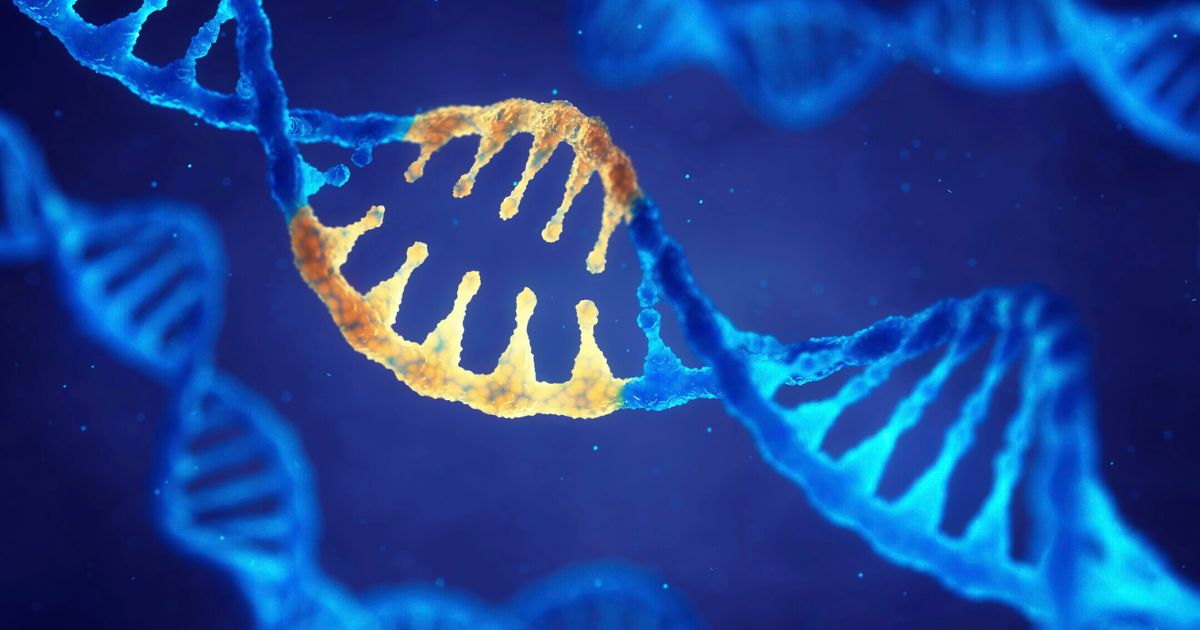Allergy is a common issue affecting many people worldwide. But can allergy be hereditary? This question interests many, so let's take a look at allergy and heredity together.

What is Allergy and How Do I Recognize It?
Before delving into the topic of heredity of allergies, let's remind ourselves what exactly allergies are. Allergies are immune system reactions to substances called allergens. These reactions can include various symptoms such as itchiness, swelling, sneezing, rhinitis, and even breathing difficulties.
Allergic reactions come in many forms from skin reactions to rhinitis and sneezing to asthma. The most common allergic condition is allergic rhinitis. The number of allergy sufferers worldwide is increasing, and research shows that the proportion of allergy sufferers among children is even greater than among adults.
Tip: Check out the article Allergic Rhinitis: Symptoms and How to Distinguish Hay Fever from Common Cold.
Is Allergy Hereditary?
The allergic condition itself is not hereditary, but predisposition to developing allergies is. However, this doesn't mean that allergies will necessarily manifest during one's lifetime.
If neither parent suffers from allergies, the chance of a child being allergic is 20%. If only one parent is allergic, the chance increases to 40%, and if both parents are allergic, the risk of developing an allergy in the child is elevated up to 80%.

Tip: Read about Dust Mite Allergy in Children and Adults: Symptoms, Manifestations, and Advice.
The risk of transferring predisposition to allergies is also 4 times higher if the mother is an allergy sufferer. However, it's possible that a child inherits an allergy even through one generation, from grandparents. Allergy can occur at any time during life.
So, if you have a family history of allergies, the likelihood of you having them too is higher.
Genetics and Allergy Risk
Regarding genetics, some genes are associated with a higher risk of developing allergies. For example, genes associated with the immune system can play a crucial role in how your body responds to allergens.
So, if you have certain genetic predispositions, you may be more susceptible to allergies.
Tip: Read on the blog about How to Recognize Allergy – Symptoms and Manifestations.
Epigenetics and Allergy Risk
In addition to genetics, epigenetics also play a role in the development of allergies. Epigenetic changes can influence whether certain genes are activated or deactivated. This can affect your sensitivity to allergens.
Who Is More Susceptible to Developing Allergies?
People who have certain genetic predispositions and a family history of allergies are more susceptible to developing allergies. Children may also be more susceptible, especially if they were exposed to allergens in early childhood.
Furthermore, susceptibility to allergies is influenced by environment, lifestyle, gender, and age.

Tip: How to Recognize and Address Allergy in Children and Infants? Learn on the blog.
Prevention
You might ask, how can allergies be prevented? There are several preventive measures you can take:
- Support positive factors: maintain a suitable diet and follow a healthy lifestyle.
- Eliminate negative factors: avoid smoking (including passive smoking), polluted air, and contact with allergens such as household pets, pollens, dust mites, molds.
- Moisture removal in the home: use air dehumidifiers or air purifiers.
- Breastfeeding and nutrition: higher consumption of zinc, selenium, and antioxidants during pregnancy may help prevent allergies in children. Breastfeed for at least the first 4 months after birth.
When to Visit an Allergist
If you or your children suspect allergies, don't hesitate to visit a doctor. Even infants can be examined.
Allergists conduct examinations, diagnose allergies, and prescribe appropriate treatment. Allergy treatment may involve antihistamines, nasal sprays, eye drops, or medications.
#produkty#https://www.nanospace.store/drops-and-sprays/
Learn More About Allergies:
Frequently Asked Questions
How can I find out if allergies are hereditary in my family?
It is recommended to consult with a family doctor and ascertain the family history of allergies.
How can I reduce the risk of allergies in my children?
Limited exposure to potential allergens and following a healthy lifestyle can help.
Are allergies permanent, or can they disappear with age?
Allergies can lessen or disappear with age, but it's not guaranteed.
Can allergies be completely cured?
It's not guaranteed that allergies can be completely cured, but treatment can help manage symptoms.
What are the most common allergies?
The most common allergies include pollen, dust, pet dander, and food allergies.
When can allergies manifest?
Allergies can manifest at different stages of life. They most commonly appear in childhood, but they can also develop later in life. Some people may go their whole lives without allergies and only start experiencing allergic reactions later in adulthood.
Sources
- BRAY, George W. The hereditary factor in asthma and other allergies. British Medical Journal, 1930, 1.3608: 384.
- RATNER, Bret; SILBERMAN, David E. Critical analysis of the hereditary concept of allergy. Journal of Allergy, 1953, 24.4: 371-378.
- WANG, De-Yun. Risk factors of allergic rhinitis: genetic or environmental?. Therapeutics and clinical risk management, 2005, 1.2: 115-123.
- RENZ, H., et al. Allergic diseases, gene–environment interactions. Allergy, 2011, 66: 10-12.
- HOLLOWAY, John W.; YANG, Ian A.; HOLGATE, Stephen T. Genetics of allergic disease. Journal of Allergy and Clinical Immunology, 2010, 125.2: S81-S94.

